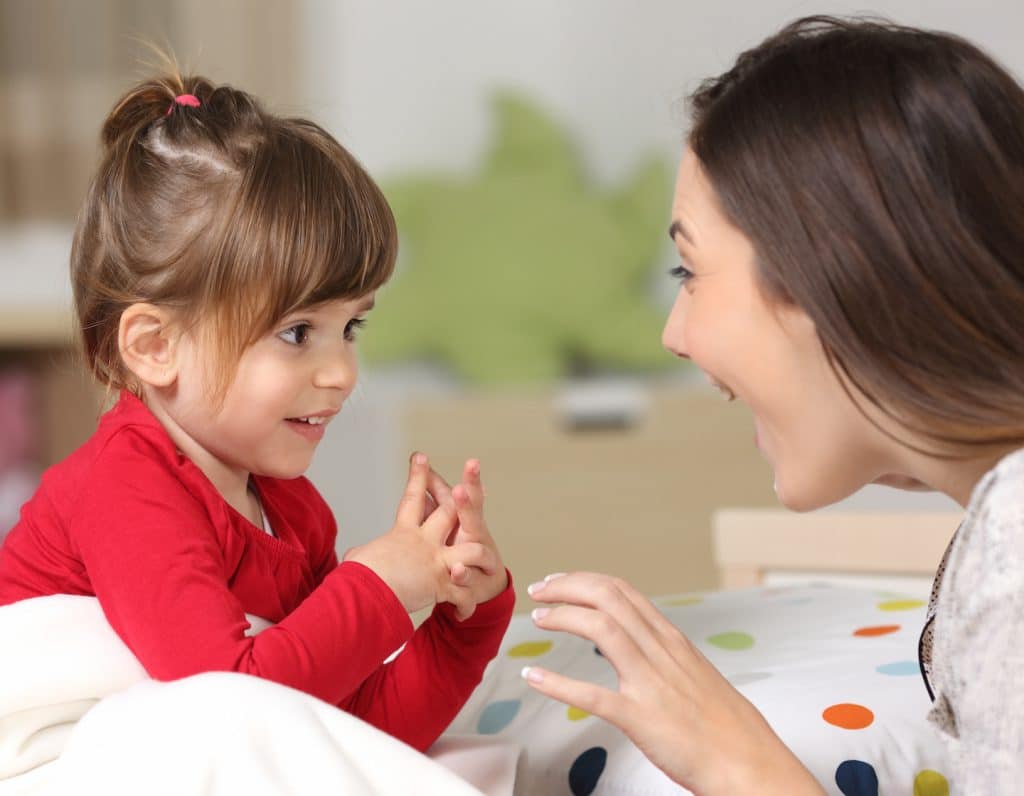
 Post Category - ParentingParenting - Post Category - BabyBaby - Post Category - Toddler & PreschoolerToddler & Preschooler - Post Category - 5-11 Year Olds5-11 Year Olds
Post Category - ParentingParenting - Post Category - BabyBaby - Post Category - Toddler & PreschoolerToddler & Preschooler - Post Category - 5-11 Year Olds5-11 Year OldsTell me about it, kid!
Some kids are naturally chatty while others are super quiet. So, how do you help your child learn to speak and communicate better? Speech and communication are the primary tools which help your child to develop and grow. And we’ve got some key tips to help develop their speech at home. They key message is to talk and play every day. Even when life gets hectic, save some special playtime just for just them and you. Here’s how to help them become toastmasters in life.
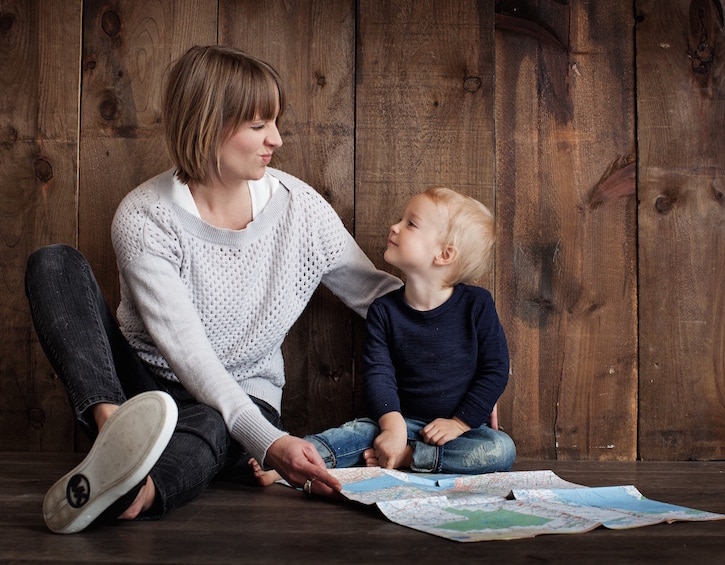
Look
Look at your baby and watch their facial expressions. Copy these expressions and make your own. These facial expressions are babies’ first methods of communication, and when they make faces at you they are learning how to interact and be social. As they get older, get down to their level when they play so you can see what they are doing. Eye contact is key in helping to develop communication so make sure you spend lots of time face to face.
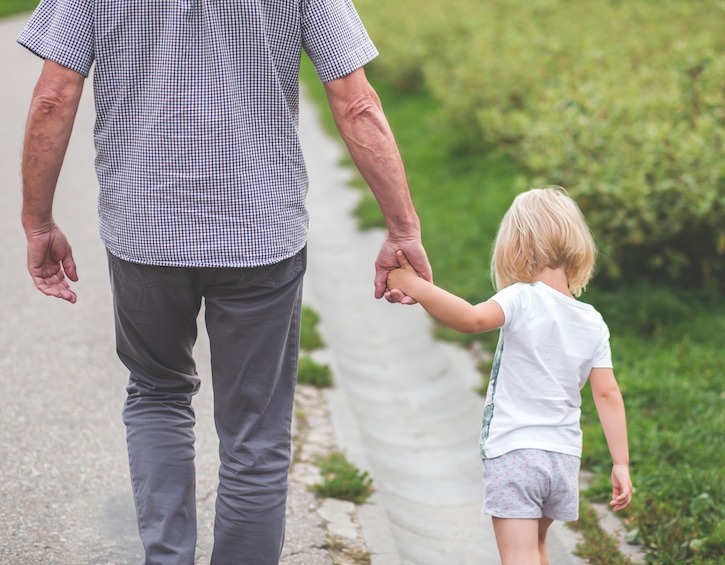
Listen
Listen to your baby’s first sounds, which you can also copy and respond to. Spend time listening to them in a quiet place. You can also play listening games. Turn off any music and listen to what sounds you can hear. Name them for your child until they get old enough to name them, themselves. Go on listening walks to help develop your child’s listening and concentration skills. When you listen to your child, make time for them to respond to what you have said or the sounds they have heard.
Talk. ALL The Time
It’s easy to drift into your own world as you walk along the streets or to use time on the bus to catch up with your phone. These are prime opportunities to talk to your baby about the world around them. Even though you may think they’re too young to understand, they are digesting the vocabulary and the sound of your voice and recognising your desire to communicate with them. Make your voice tuneful as you talk, and use singing in everyday activities. You can make up songs when feeding or changing their nappy so they hear more words, and also so they hear yore voice more. Use every opportunity to talk to your child about routines (e.g. ‘Mummy is putting shoes on,’ or ‘We’re going to the park.’). Name the objects your child sees and is interested in (e.g. ‘dog’, ‘here comes bus’, ‘more juice’). Clearly stress the important words and use short, simple sentences (e.g. rather than saying ‘It’s raining outside. Let’s put your boots on’, you could say ‘Raining, boots on’). This will help your toddler understand what you are saying and then use these words when they are ready.
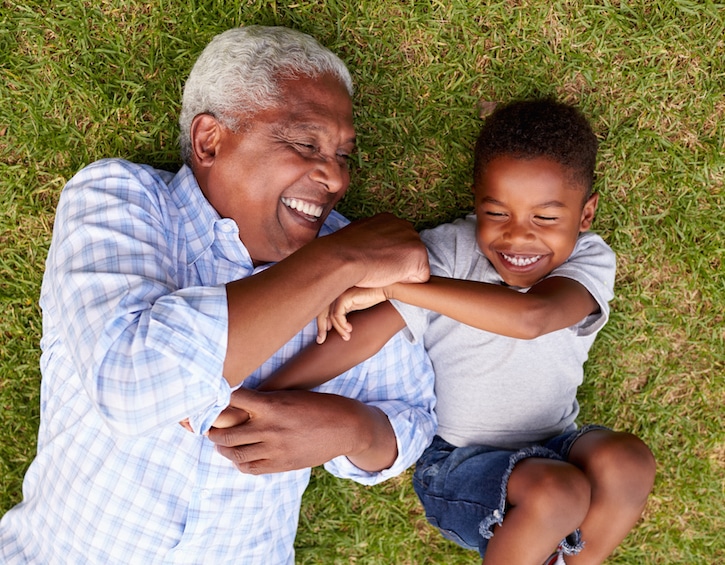
Play
You are actually your baby’s favourite, so toy and games such as peek-a-boo, singing together and tickling your baby are great ways to interact and communicate. They enjoy your time more than anything else. All of these interactions are supporting and developing their communication and are laying the foundations for speech development. Play repetitive games, so your child learns to anticipate what will come next – games such as bouncing them on your knee and then jumping in the air after the count of three. Games that hide or ‘post’ toys and blowing bubbles help children learn words like ‘more’ or ‘gone,’ so these are fantastic tools for speech development.
Share
Share quiet time together and read books to your baby from birth – turn off all distractions so your baby can focus on your voice. This will also help develop concentration and listening skills, which are vital for communication and speech development. Encourage your baby to take turns with talking. When they make a noise or smile, you smile and say something back. You need to let your baby have a chance to respond, so give them time to make another noise as you keep looking and smiling at them.
 View All
View All
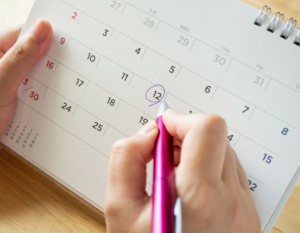
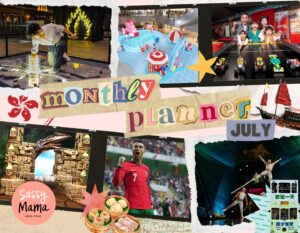

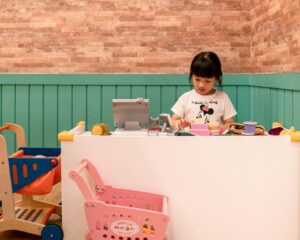




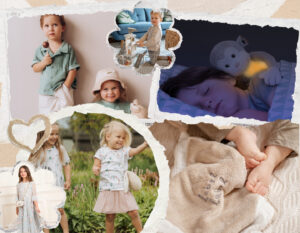
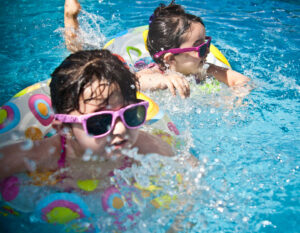
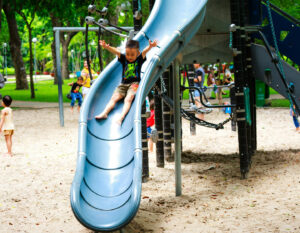
 View All
View All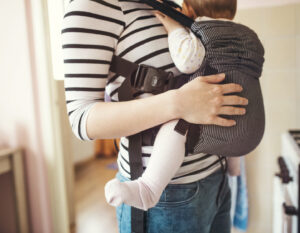
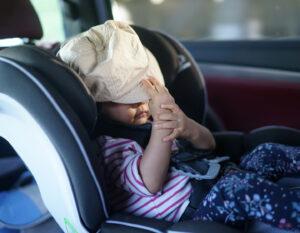
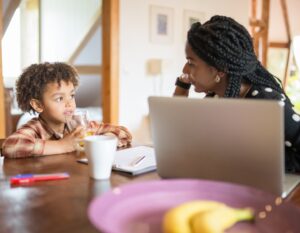

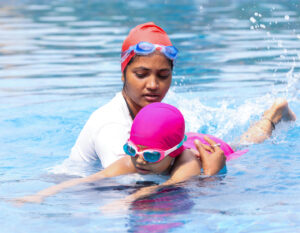
 View All
View All


 View All
View All









